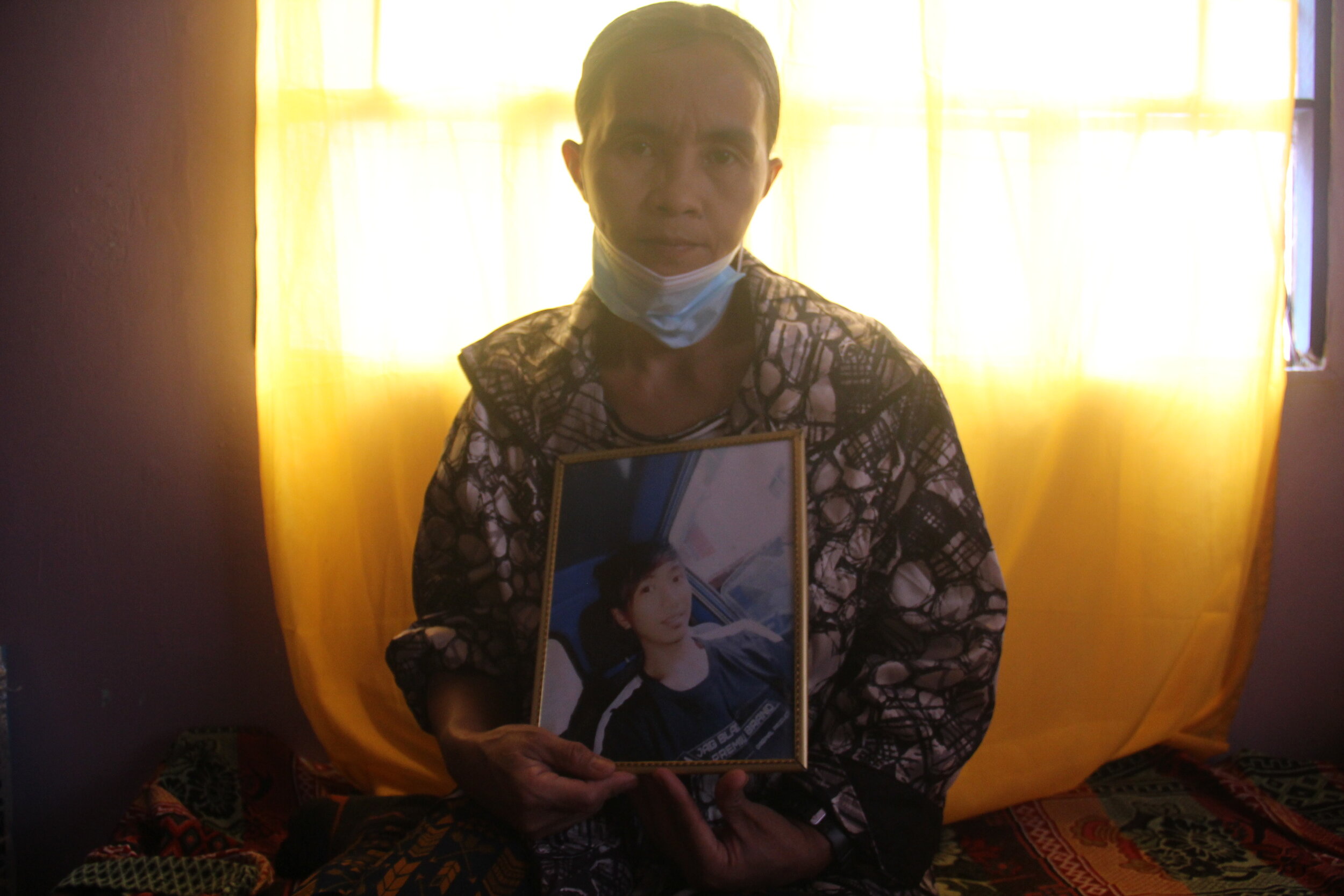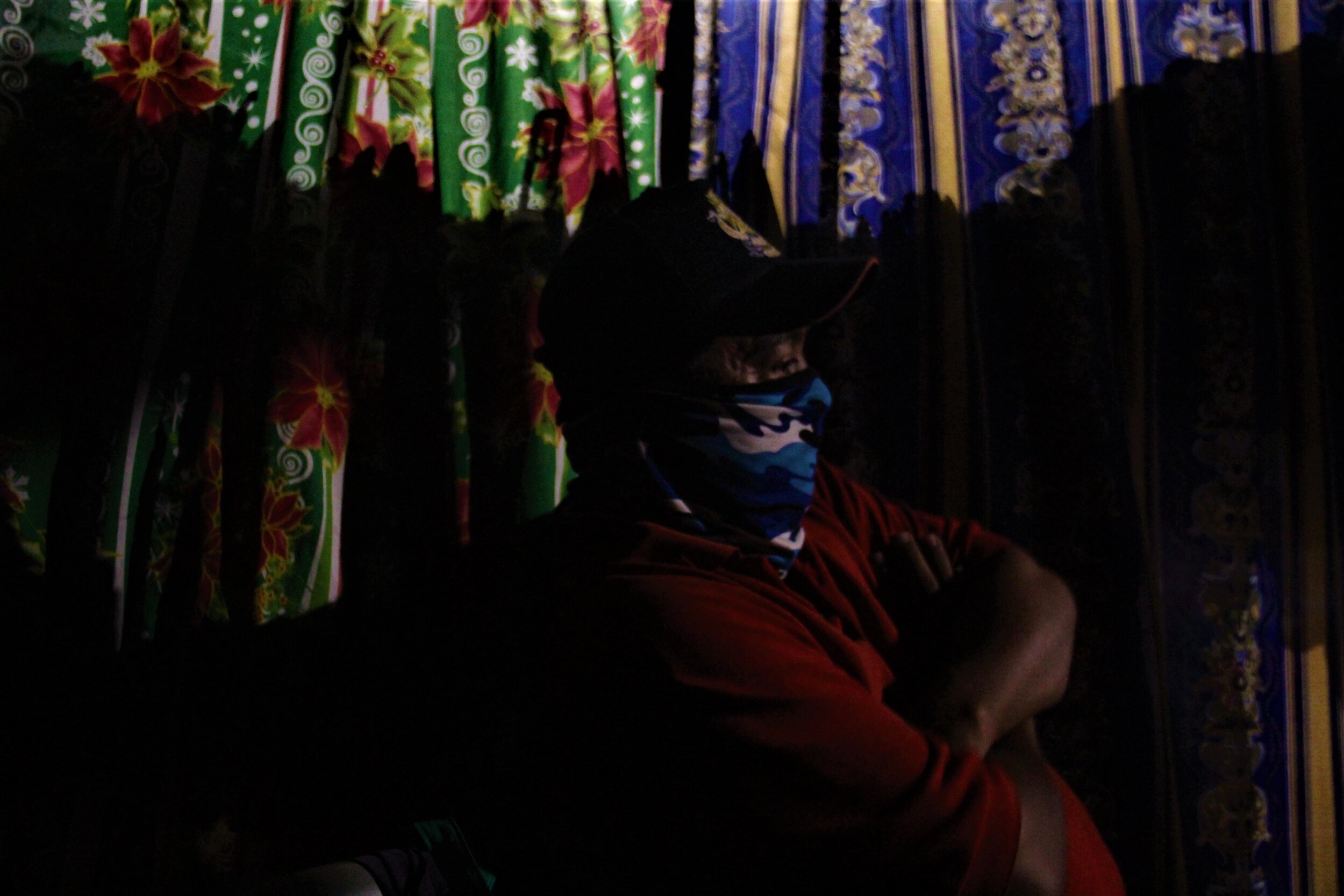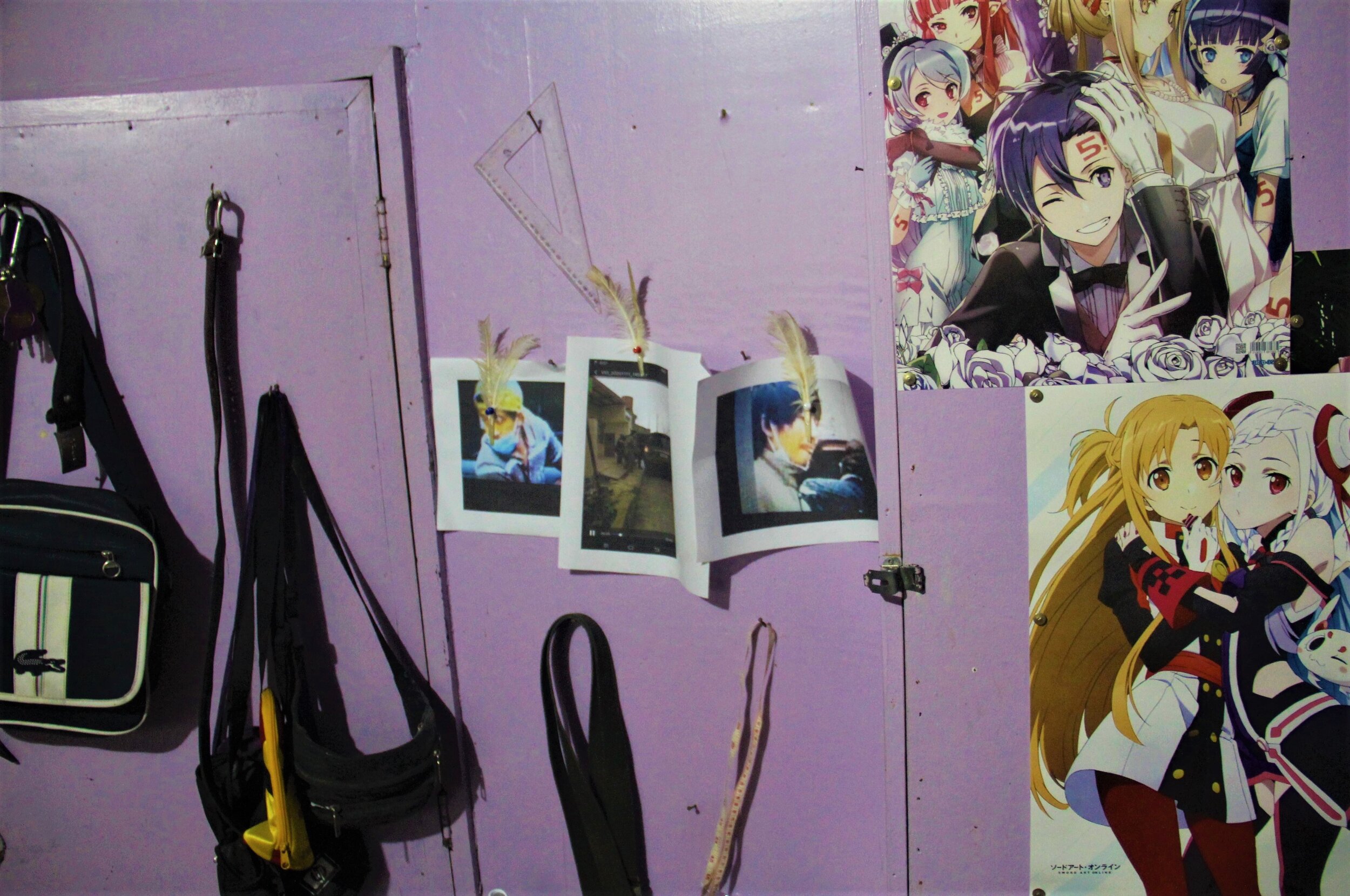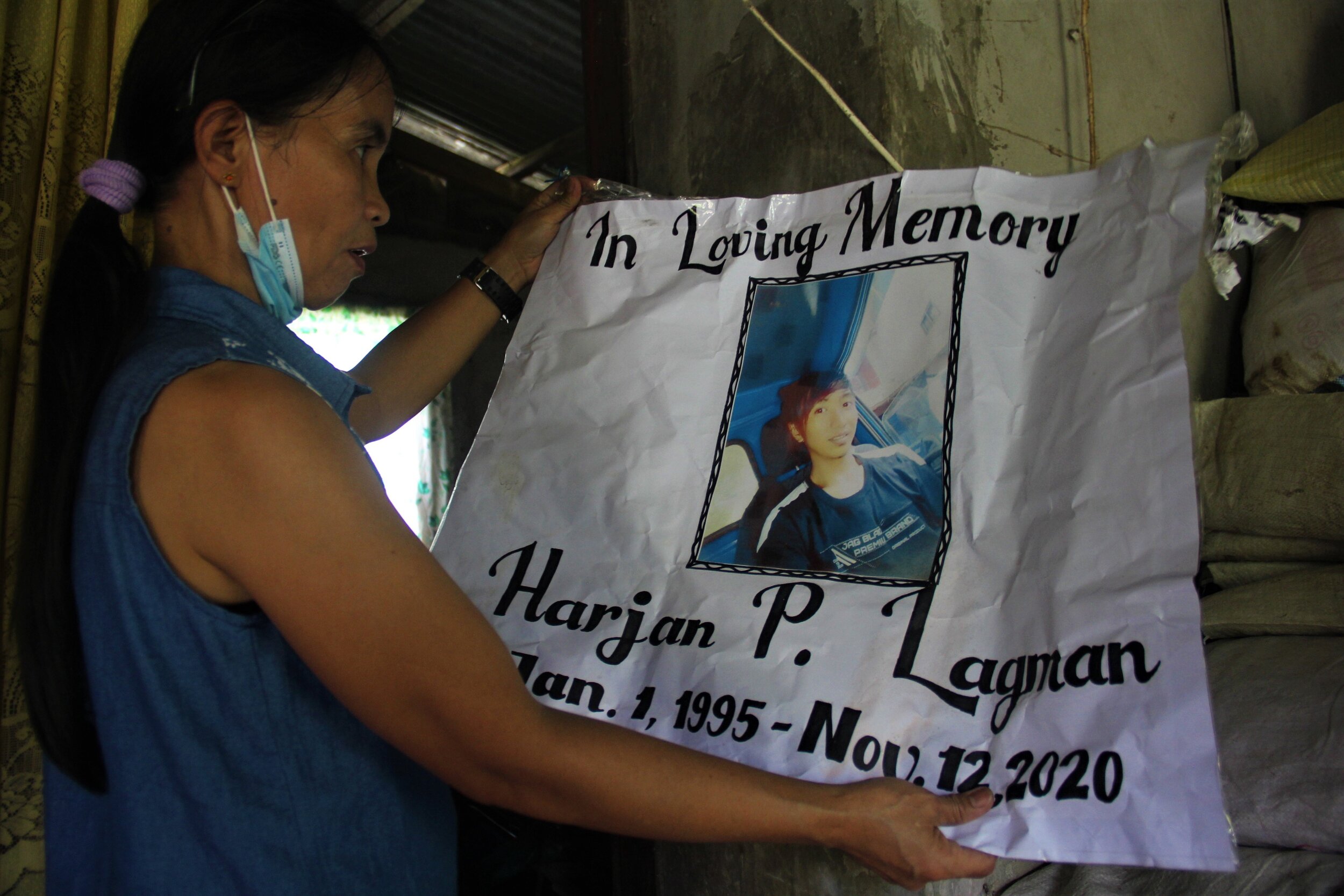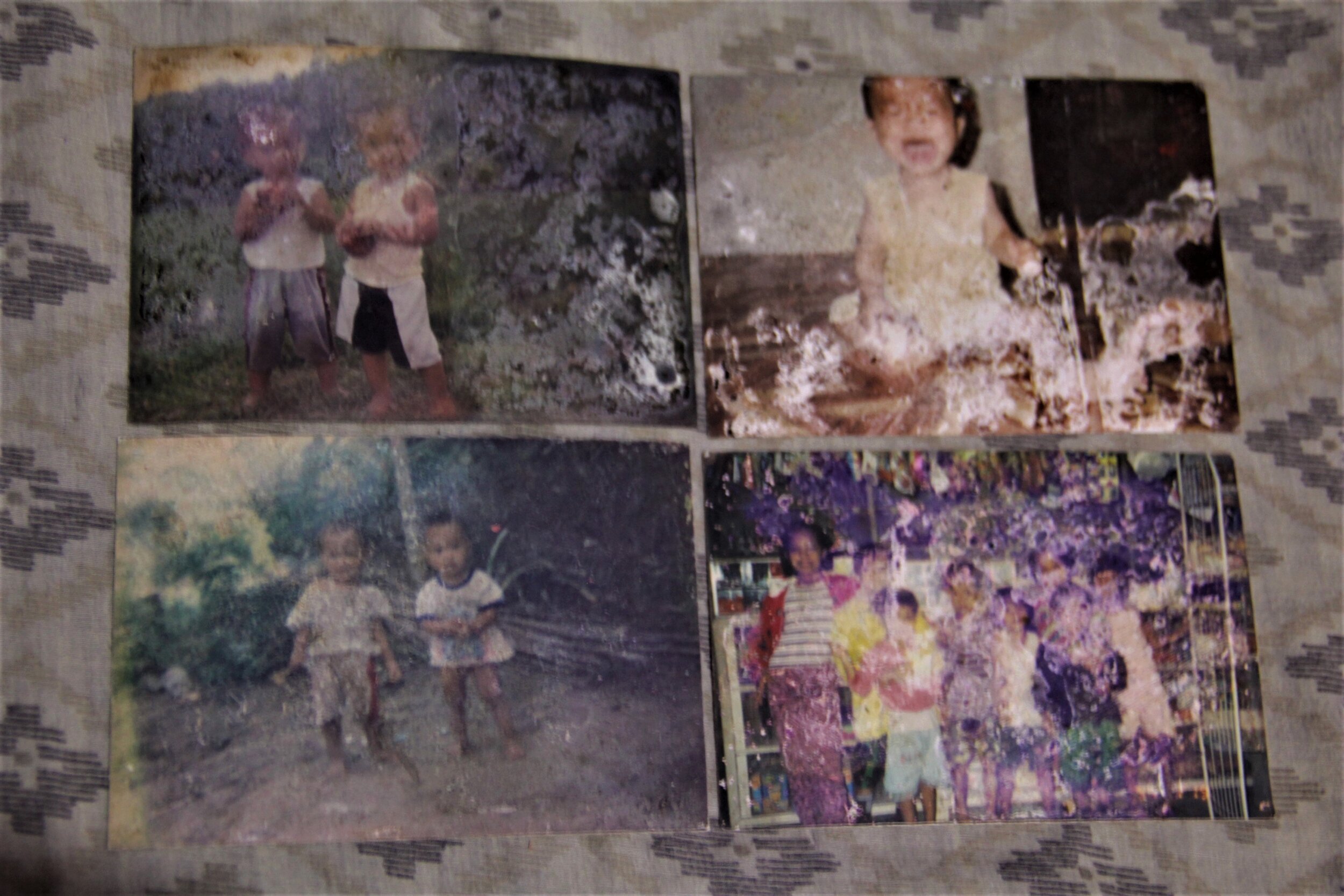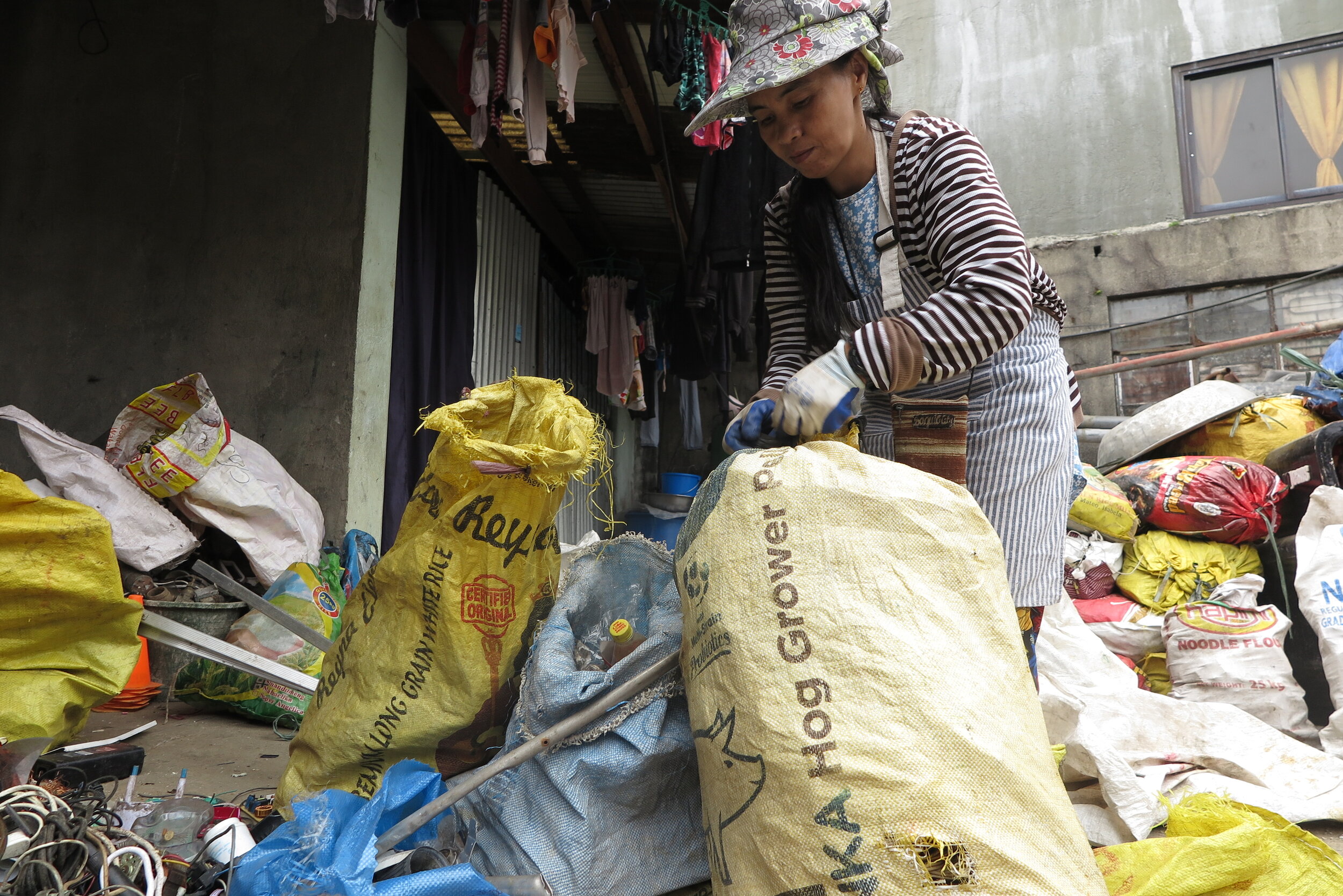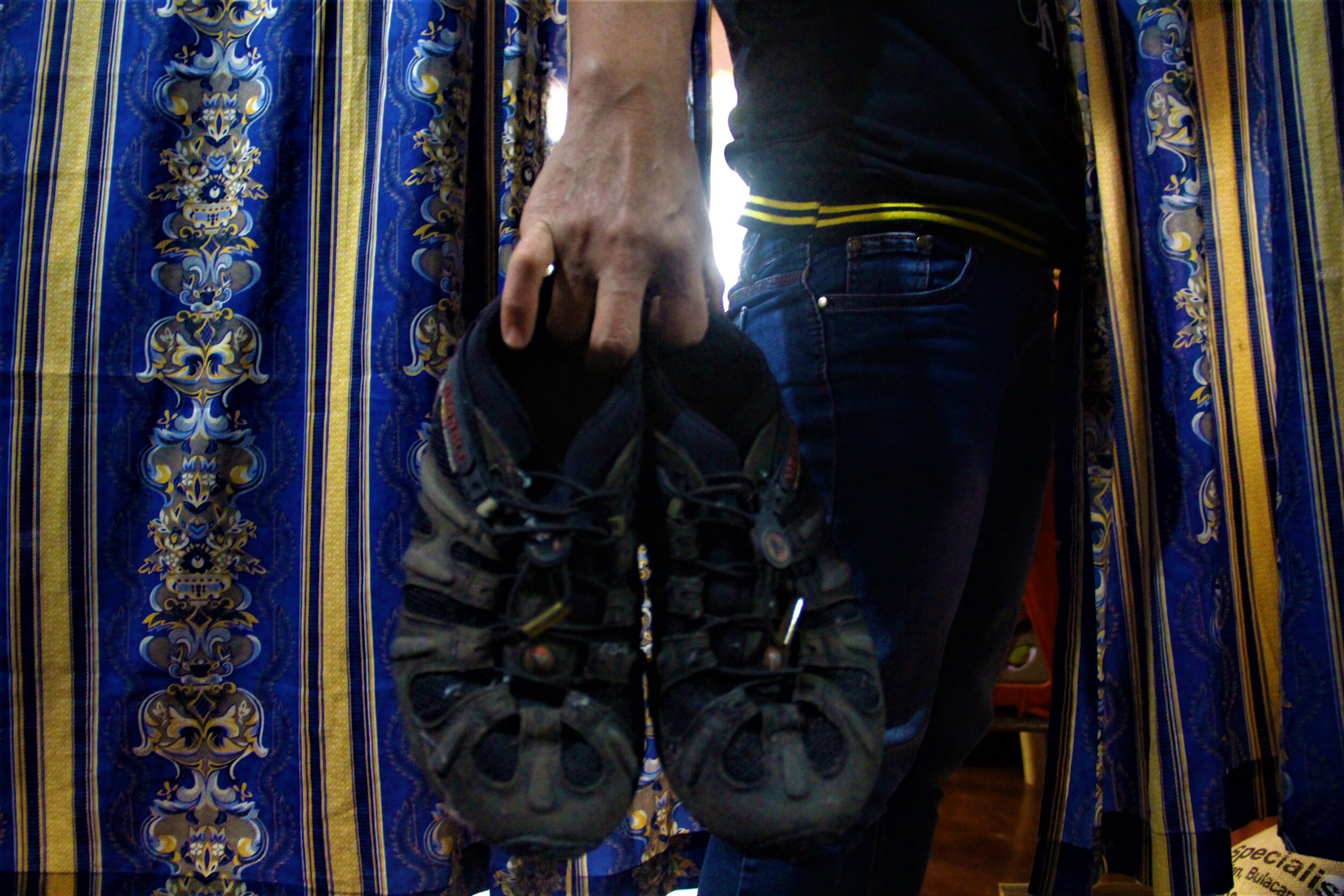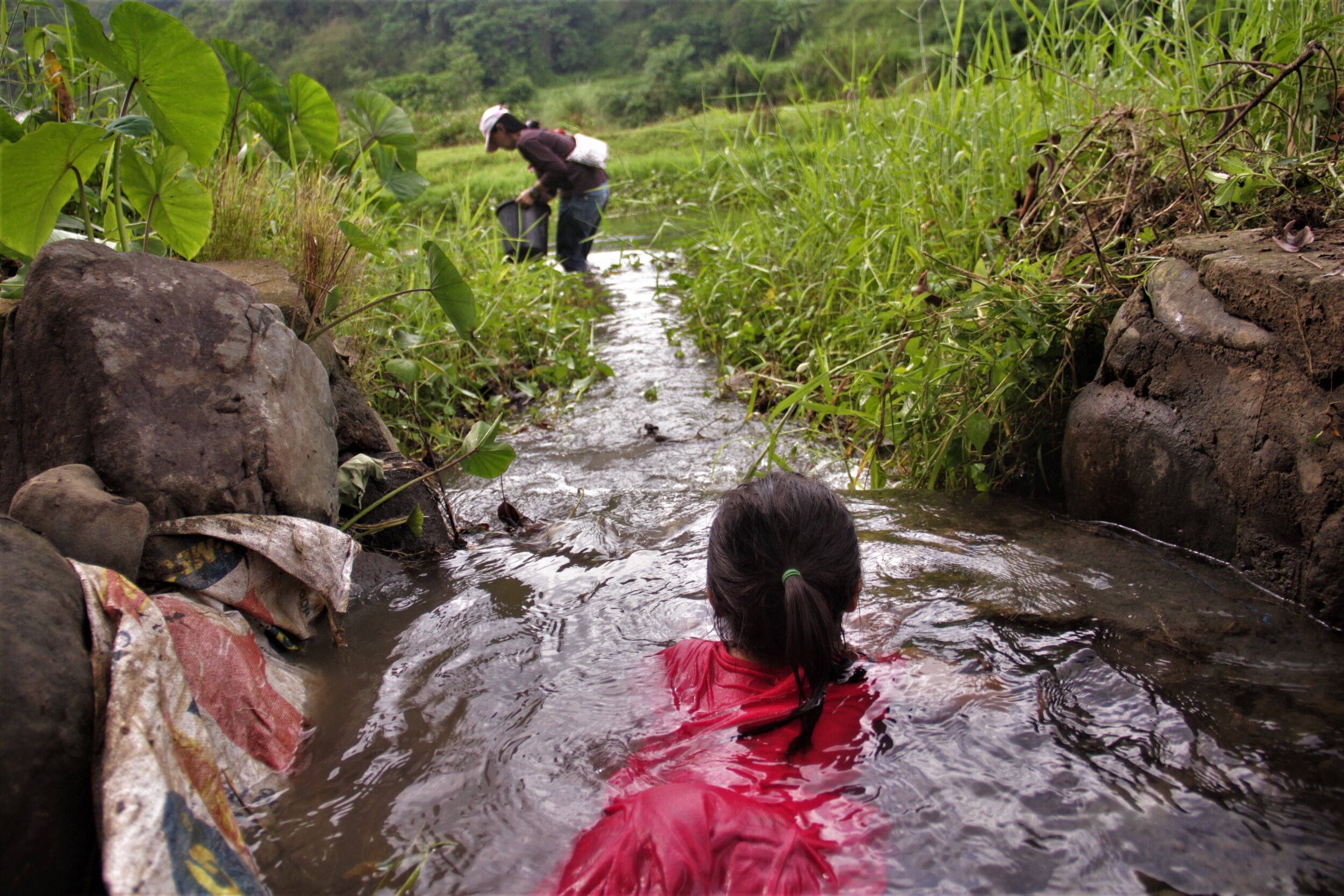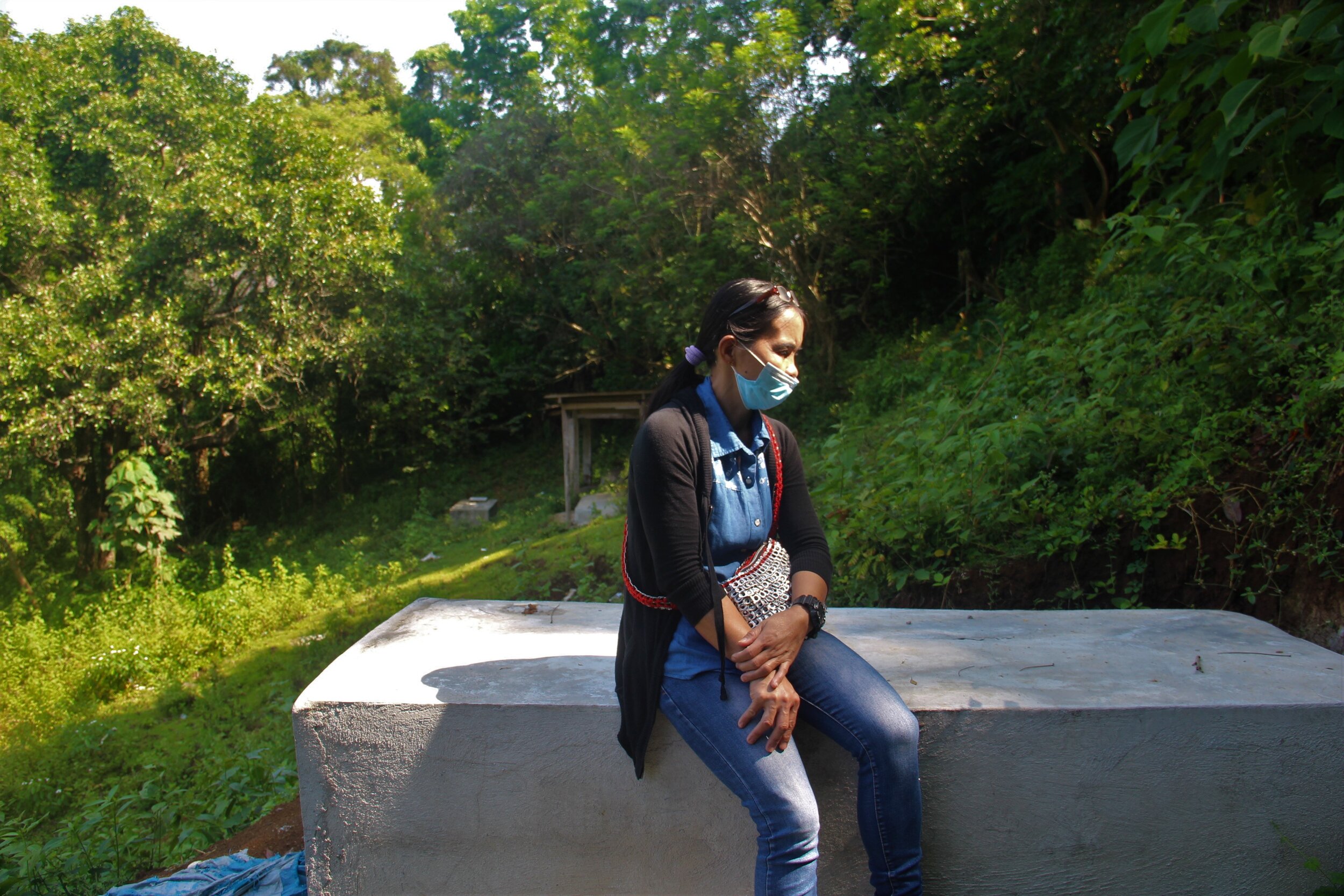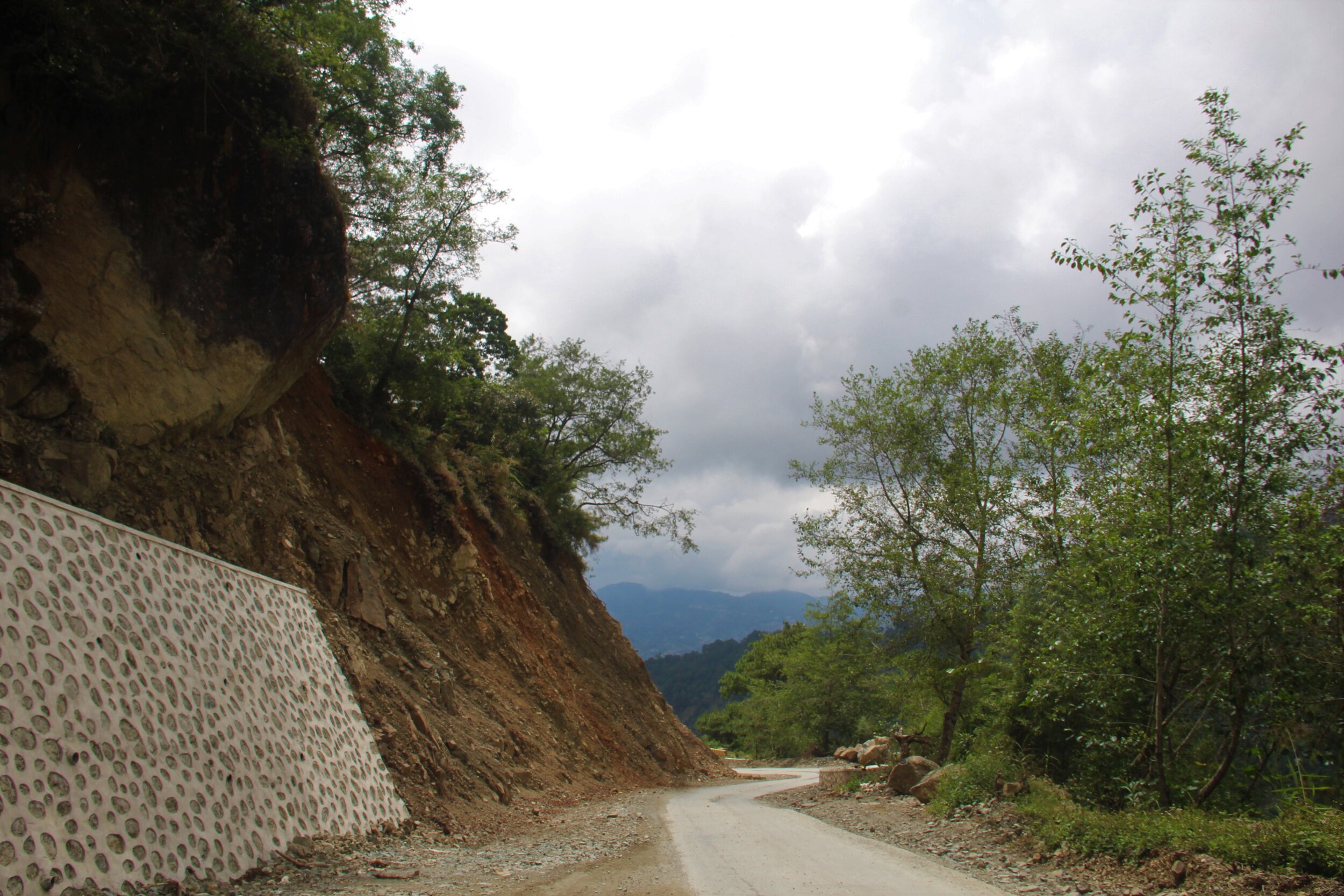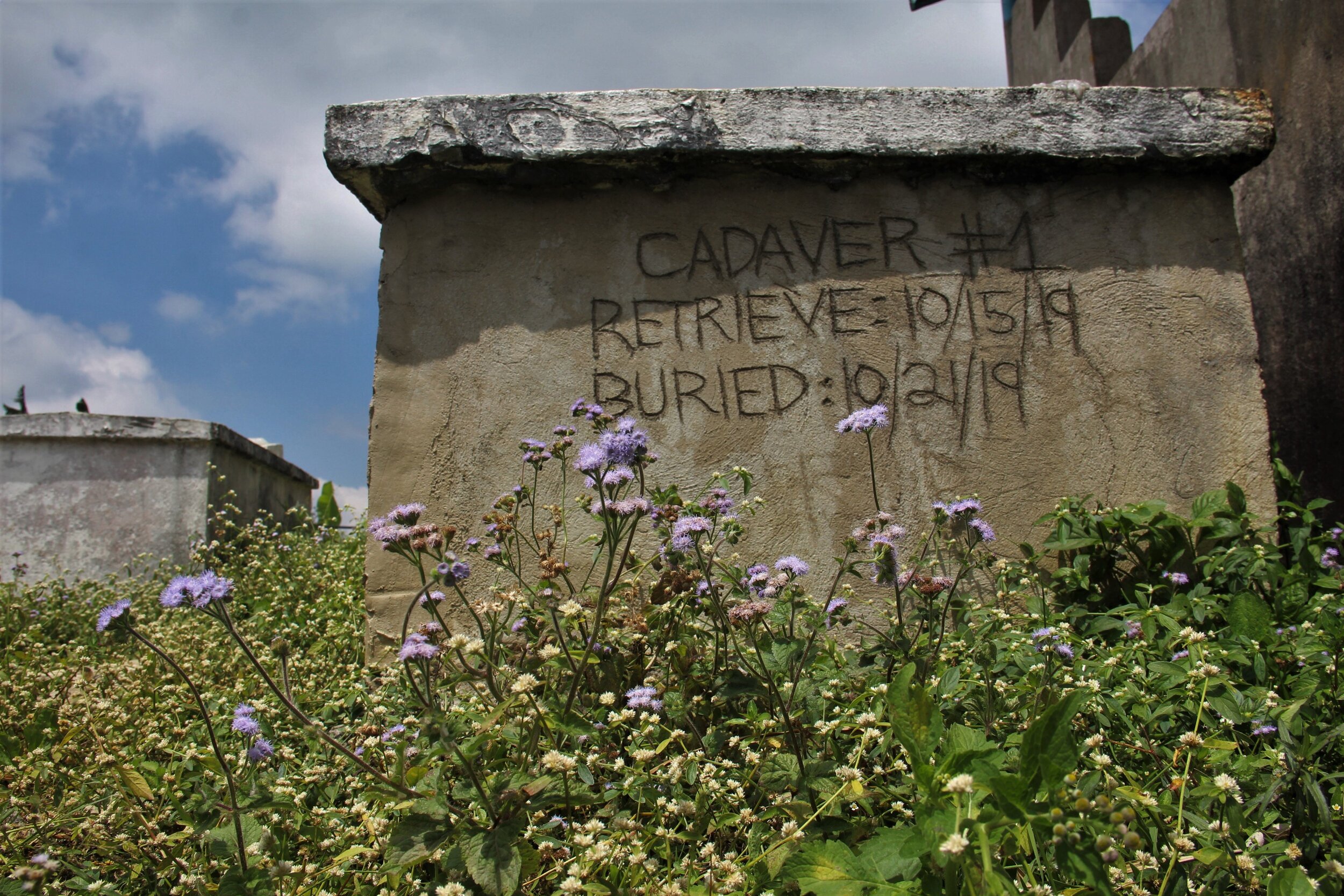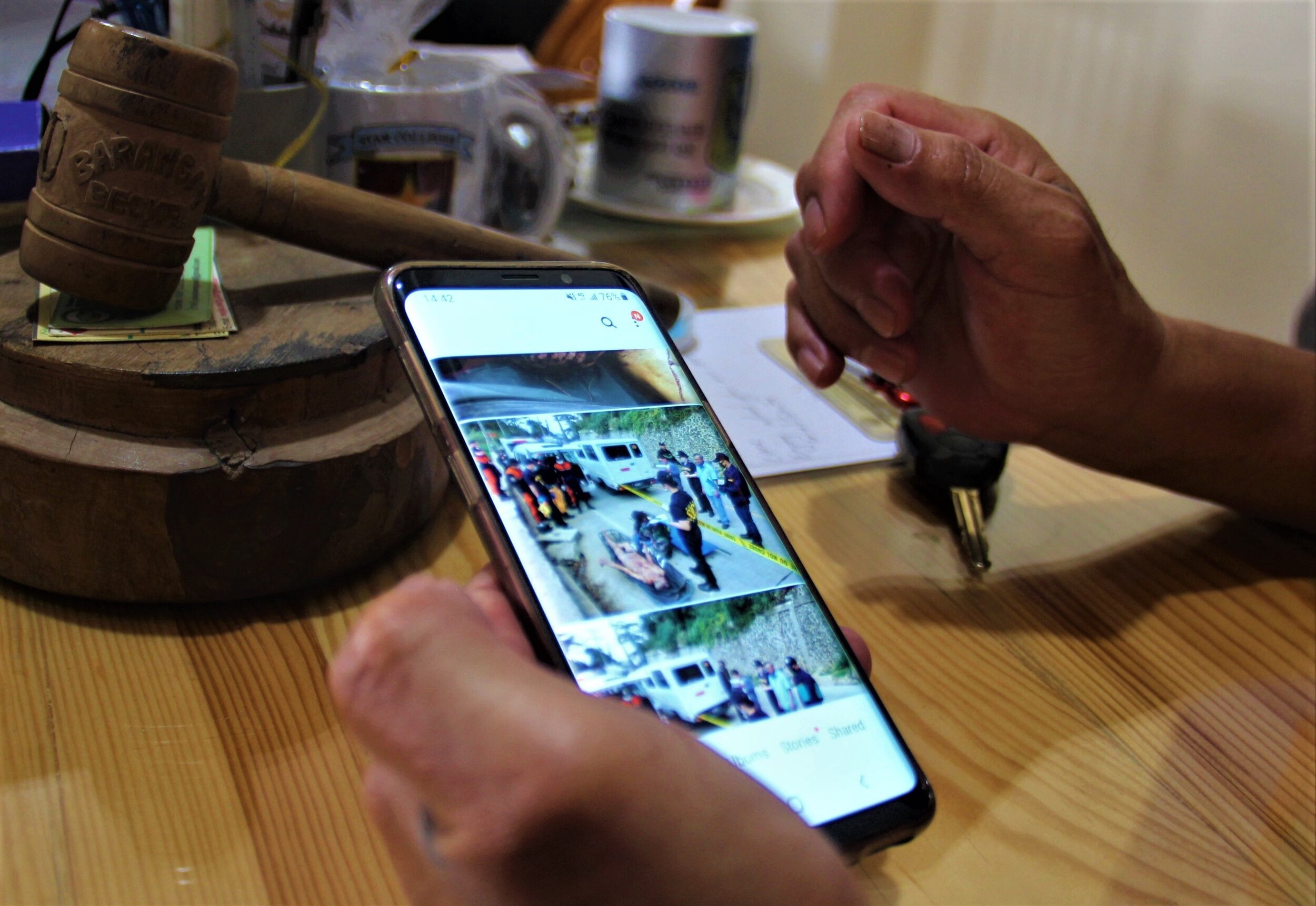In Loving Memory
PHOTOS AND TEXT BY
Lauren Alimondo
“Treated like an animal.” This was how Harjan Lagman’s parents described the way their son was killed.
On Nov. 11, 2020, Linda Lagman, a junkshop owner in Baguio City, found out that Harjan had been abducted. The day after, his headless body was found in a ravine on Labey-Lacamen Road at Barangay Ambassador in Tublay, Benguet.
Five months since the death of the 25-year-old, the clamor of the bereaved family has been firm and consistent: Justice.
Harjan’s headless body was seen by construction workers lying on the ground in a landslide-prone area where there are only a few houses. They reported it to police officers conducting road monitoring. The headless body was later identified as Harjan’s by his parents.
Crime scene operatives in Benguet found several hack wounds on Harjan’s left knee and two hack wounds on the left shoulder and buttocks.
“It’s been five months and whenever I wake up, I remember my child, the way they tortured him. If you see your child treated like that, how would you feel?” Harjan’s father said in the local dialect.
Despite multiple searches, the family and members of the community were unable to locate Harjan’s head.
Harjan’s memory remains vivid in the places he had visited, his photos, and his belongings. His parents kept his clothes and his shoes.
“It’s hard to forget our son especially with what happened to him. My birthday happens to be on November 1 (All Soul’s Day) and Harjan’s birthday is on January 1,” Harjan’s father added.
Linda recalled how her son grew up in their hometown outside the city and learned to drive at an early age.
Harjan’s earnings as a driver for a gas delivery service helped the family amid the difficulties brought by the Covid-19 pandemic, she said.
Prime suspects: The police
Benguet’s landslide-prone ravines, located near national highways, are also tourist destinations offering stunning views of the forests.
If not medical waste and vehicles involved in road crashes, dead bodies were retrieved by local responders in Benguet’s ravines from 2019 to 2020.
In the last two years, 29 cases of killings and dumping of cadavers in Baguio City and Benguet were probed by the Commission on Human Rights Cordillera. Majority of the cases remained under investigation.
After an extensive investigation, the Baguio City Police Office identified the suspects on Dec. 16 as police officers of the Regional Drug Enforcement Unit (RDEU) of Police Regional Office Cordillera.
The unnamed suspects were disarmed and placed under restrictive custody, Baguio City police said. The Police Regional Office Cordillera later dissolved the RDEU.
A week after the suspects were identified, Baguio City police turned over the case to the National Bureau of Investigation “in the hope that this will dispel any suspicion or doubts on the integrity of the investigation and of allegations of any possible cover up.”
As she sorts through the discarded plastic, cans, and metals at the junk shop, Linda finds time on social media to share her family’s call for justice for Harjan’s death.
“It is painful. But I kept on enduring [the pain]. This is not a game where I can give up. I will fight as much as I can and I know God is there to help. We want justice,” said Linda.
This story is one of twelve photo essays produced during the Capturing Human Rights fellowship, a seminar and mentoring program jointly undertaken by the Philippine Center for Investigative Journalism and the Photojournalists' Center of the Philippines.


